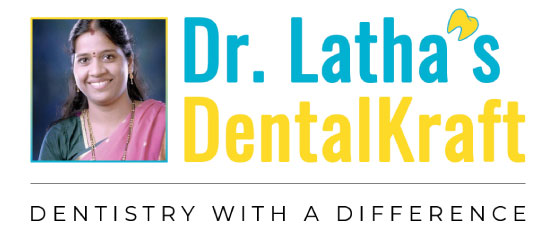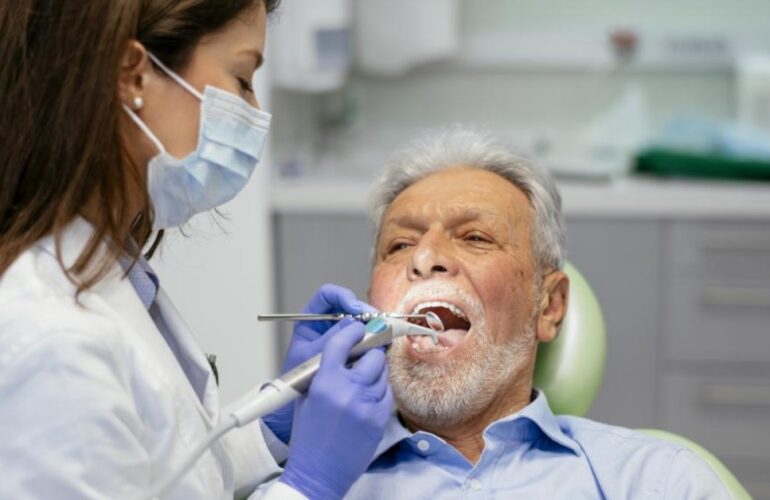Why Does My Tooth Ache?
Tooth pain in any way, shape, or form can denote several problems, ranging from infection, injury, cavities or breakage, or tooth loss. Based on the severity of the problem, you can treat it by yourself or seek emergency dental care as well.
Your usual problems can be dealt with by flossing regularly, brushing with a toothpaste that contains fluoride, and seeking a dentist to get your teeth cleaned twice a year. Let’s take a look at all the different causes and remedies associated with toothaches.
Sensitive Teeth
Throughout your life, your oral enamel that protects your nerves stands the risk of wearing out. This would expose your nerve endings, and nerve endings are highly receptive by nature. In turn, you are going to feel the sensitivity in your teeth.
This can happen faster if you contract any gum disease, as your gums would shrink, exposing the nerve endings. You also stand the risk of exposing these nerve endings if you brush too hard.
Any procedure that you undergo related to the cleaning of the teeth can also make it sensitive.
Popular remedies for this issue include avoiding any peroxide-based cleaning agent and avoiding brushing too hard. Also, you can resort to using sensitivity-toothpaste, which blocks your exposed nerve endings.
Damaged Tooth
Broken or damaged teeth can also cause toothaches. You might not experience any pain until the chip gets large enough to expose your nerve ending. This might result in pain when you chew something or drink sweet beverages.
Cracked teeth can affect the root area of the tooth, and this too can be felt only when eating something.
The ideal remedy to the damaged tooth is to visit a dentist at your earliest convenience. Dr. Latha’s DentalKraft is a dental clinic in Pondicherry that offers the most affordable dental treatments, and you can get the help of some of the most accomplished dentists with skills on par with the international standards.
Teeth Grinding
Grinding your teeth or jaw-clenching can also result in toothaches, as that tends to wear your enamel down, exposing your nerve endings. Grinding is common nowadays, and it is often caused by an irregular sleep schedule and stress.
Work on alleviating your stress and regulating your sleep, and that would help in controlling yourself from grinding your teeth.
Referred Pain
Toothache can be attributed to a lot more problems than plainly teeth-related problems. It can even be a sinus infection, migraines, or jaw-muscle contraction issues.
Symptoms
Toothache is a common issue, largely related to underlying sensitivity problems or damaged tooth mostly. Some symptoms for toothache include:
- Chewing-related pain in your tooth and jaw
- Migraines and headaches
- Sensitive teeth upon sudden change of temperature of your mouth. Eating something extremely hot or cold. Sweet foods or acidity-related issues may be an issue as well.
- Gum-bleeding or bleeding around a tooth.
- Jaw swelling up.
- Any injury near the mouth area.
These are the signs that show that you have tooth decay, cracked teeth, or even gum disease in some severe cases.
Appropriate Medical Care
If the toothache persists, you should be looking for a dentist near you. When should you be visiting a dentist upon toothache?
If the pain doesn’t get relieved even after using over-the-counter medication, make sure that you visit a dentist.
You could have just been done with a dental procedure, and that might be causing the pain as well. If you just had a tooth pulled, and the pain becomes severe after 3 days, you should be visiting a dentist pronto. This might be due to the bone being exposed in the interval between a clot being removed and a new clot forming. This condition is known as dry socket syndrome, and if you develop this, you should be visiting a dentist within 24 hours.
If the pain is paired with gum swelling or bleeding, it might be a symptom of gum disease. It might also cause a fever, as simple toothache wouldn’t cause fever. These are tell-tale symptoms of disease or infection, and you should visit a dentist as soon as possible.
If you had any injury that resulted in broken teeth, and it is severe, you should visit a dentist for a proper diagnosis and treatment.
Toothache is not the only pain that occurs in your mouth. Any pain in your jaw and difficulty in opening your mouth might also call for a dentist visit. Upon any such issue, make sure that you get a proper diagnosis from a dentist.
Wisdom teeth might also be a reason for any pain in your teeth. The eruption of wisdom teeth also might be the reason for toothaches, and upon a visit to the dentist, they can alleviate this pain through proper procedures, be it removal of the teeth or treatment without removal.
To conclude, a toothache is a common issue prevalent in most of the patients that visit the dentist. Make sure that you visit a dentist to get the proper treatment so that it doesn’t persist or worse, change into something severe.




